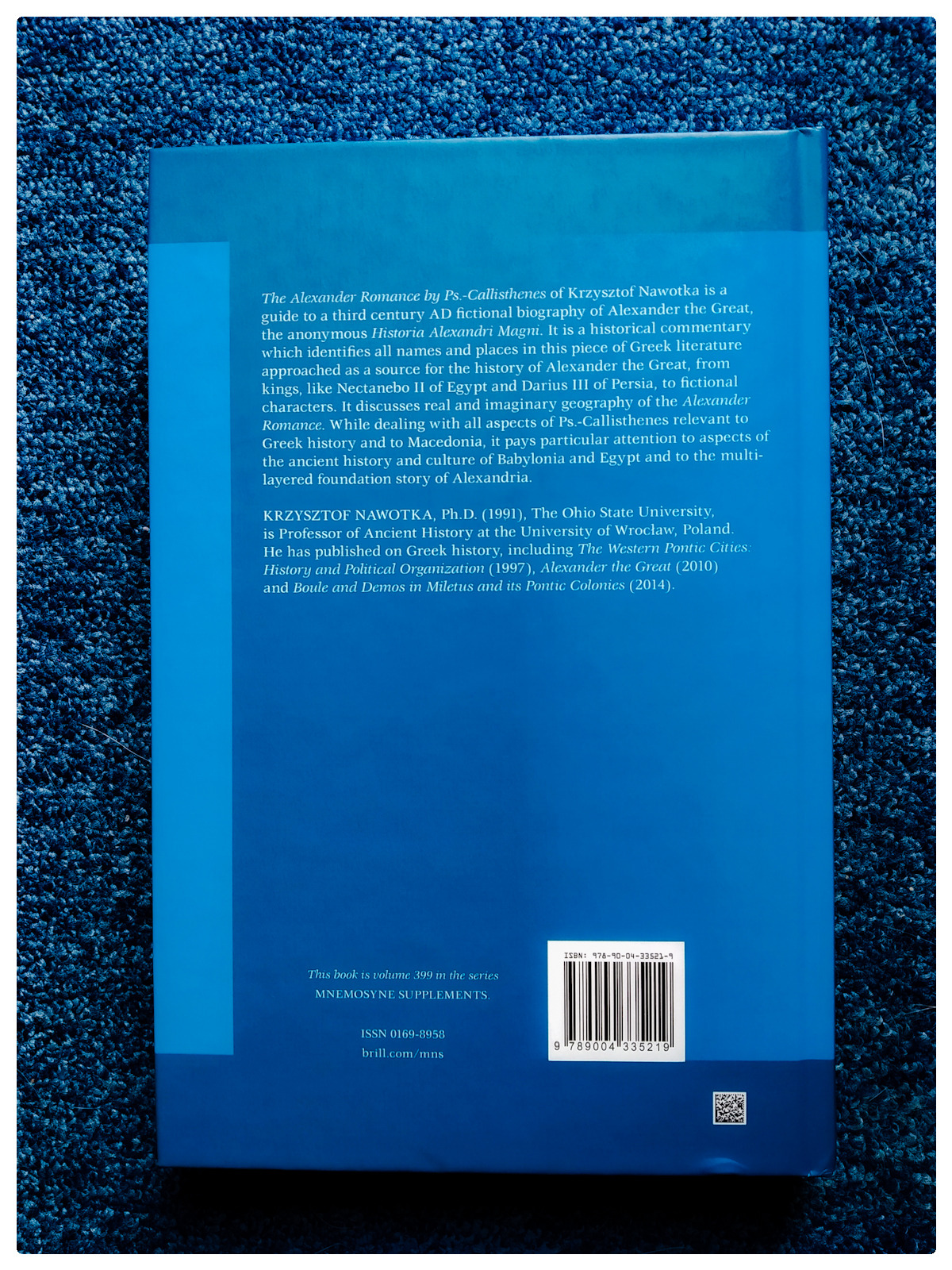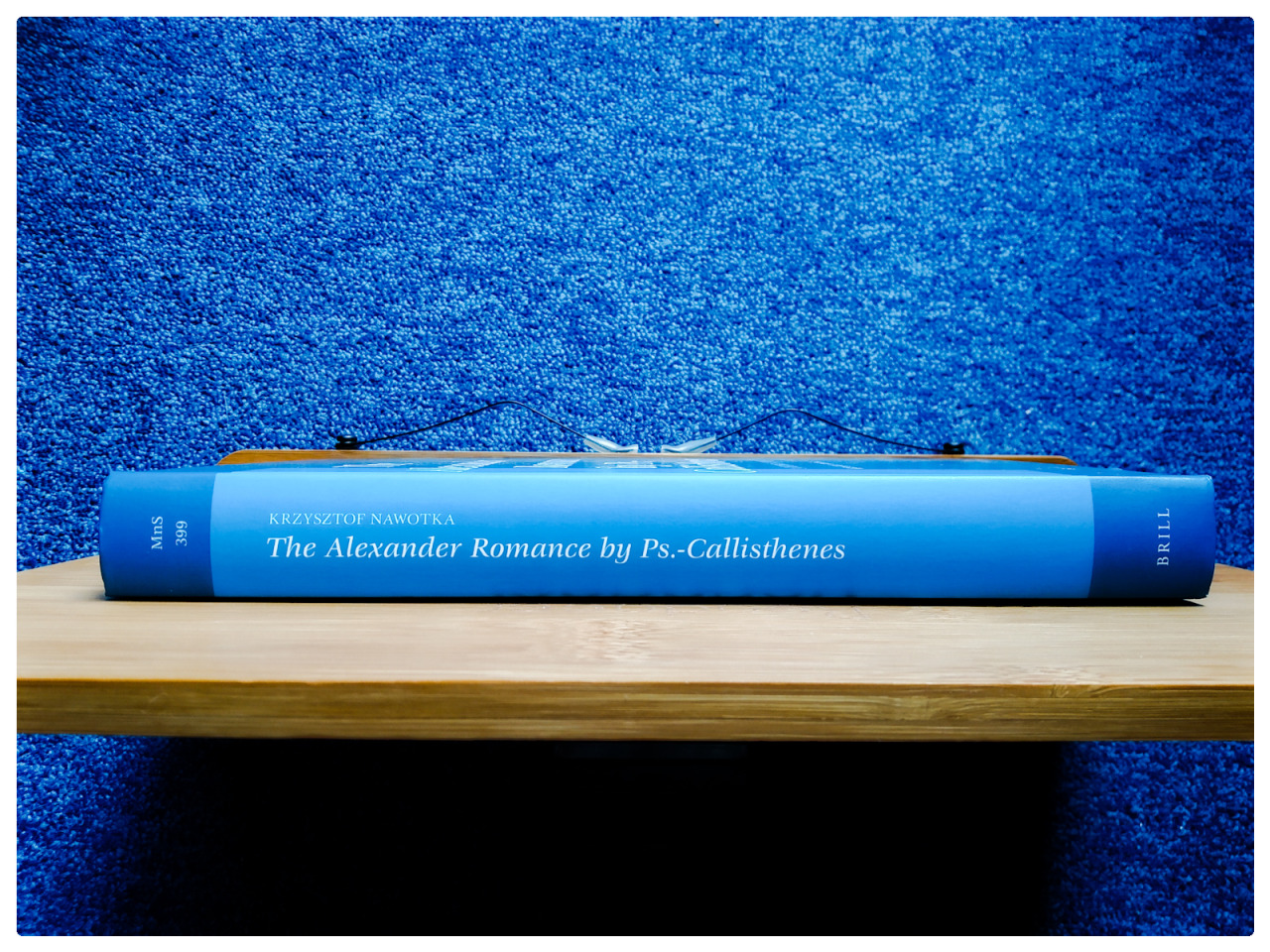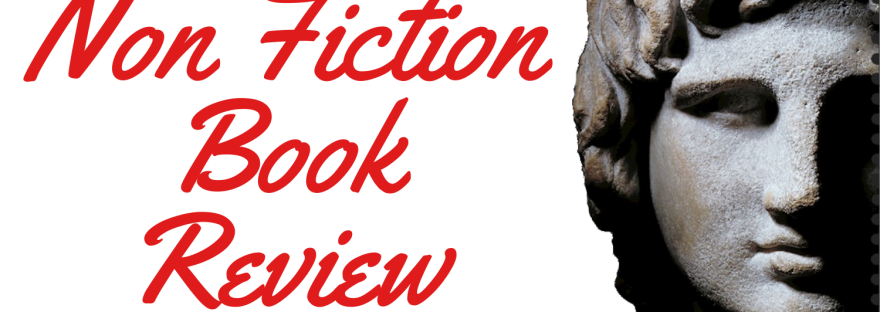Quotes: HERE.
Recensione in italiano: QUI.
Good day everyone, thank you for being on Alessandro III di Macedonia- your resource on Alexander the Great! Today I speak to you of an incredible reading. Find out why in the book review:
The Alexander Romance by Ps.-Callisthenes
A Historical Commentary
by Krzysztof Nawotka
Publisher: Brill
ISBN Hardback: 978-90-04-33521-9
Publication Date: 16 Aug 2017



The Alexander Romance by Ps.-Callisthenes of Krzysztof Nawotka is a guide to a third century AD fictional biography of Alexander the Great, the anonymous Historia Alexandri Magni. It is a historical commentary which identifies all names and places in this piece of Greek literature approached as a source for the history of Alexander the Great, from kings, like Nectanebo II of Egypt and Darius III of Persia, to fictional characters. It discusses real and imaginary geography of the Alexander Romance. While dealing with all aspects of Ps.-Callisthenes relevant to Greek history and to Macedonia, its pays particular attention to aspects of ancient history and culture of Babylonia and Egypt and to the multi-layered foundation story of Alexandria.
Krzysztof Nawotka, Ph.D. (1991), The Ohio State University, is Professor of Ancient History at the University of Wrocław, Poland. He has published on Greek history, including The Western Pontic Cities: History and Political Organization (1997), Alexander the Great (2010), Boule and Demos in Miletus and its Pontic Colonies (2014).

5 stars: it couldn’t be otherwise.
Reading time: from January 29 to February 26 2020.

This is the second book I read by the publisher Brill and I believe is one of the best publishers in the world: the books are extremely accurate in all aspects and represent the best of the best in the international academic panorama. One flaw, if it can be considered as such, is that they are expensive books but, given the quality from all points of view of these volumes, I can get a reason for the prices. If you keep an eye on the on-line prices, you will find them heavily discounted and it’s on those occasions that you can buy them. It’s not surprising to me that this book is owned by a handful of university libraries throughout Italy. In short, the quality of the Brill is unquestionable and those who have the pleasure of reading even one of these goodies realize it.
After this due premise to the publisher we talk about The Alexander Romance by Ps.-Callisthenes A Historical Commentary, but this premise doesn’t refer only to Brill but also to this book because calling it “historical comment” is simply an understatement: Nawotka not only analyzes the various ancient editions of Alexander Romance highlighting differences and possible or sure later additions, but it also compares the ideas of ancient, modern and contemporary authors regarding everything related to the text. Nawotka’s work is immense, exhaustive, extra-documented. His research starts directly from the original text of version A written by Kroll, Gunderson and Braccini and then explains the differences of contemporary authors: in short, Nawotka criticizes working not only on the criticisms of others but on the actual text.
Nawotka explains everything he owes and beyond: who is the most likely author of the Romance, he explains the differences between the various editions and even the translation differences of the text, he goes on to explain facts and events that are missing in the text but he he explains however. The author compares where a news is reported and where instead it is cited differently to understand how true that part of the novel is. As I said before, the author is exhaustive: he analyzes who the people present at Alexander’s last banquet were, the one organized by Medios.
The long Introduction of the text speaks: of the author, the title and the date of composition, there is a table showing the dates of events in reality and where they are narrated in the Romance, of its genre, its composition, of Egyptian roots of the Romance, of the comparison between Alexander and the Romance, of the language used, of the opinions and versions of the Romance. Nawotka’s commentary takes up the original in Greek and then explains word by word all there is to say, also indicating the different translations and interpretations of the critics.
What surprised me about this comment is that is longer than the original text and although it was a comment, I came to know facts about Alexander that I didn’t know before. The book is accompanied by beautiful color photographs and there is no shortage of 40 pages bibliography and two final indexes.
Brill’s website says the readership of this book is:
Scholars and advanced students (undergraduate and graduate) in classics, ancient history, Egyptology, as well as ambitious enthusiasts of Alexander the Great
and I can only agree. Anyone wishing to go deeper into Alexander Romance cannot fail to read this book and now I have also wanted to read Stoneman’s comment published in Italy by the Valla-Mondadori Foundation (2 volumes of 3).
I finally would like to thank the publisher Brill for allowing me to buy this book at a discounted price: without this opportunity I wouldn’t have been able to buy it, read it and review it here. Thank you.





1 pensiero su “Book Review: “The Alexander Romance by Ps.-Callisthenes: A Historical Commentary” by Krzysztof Nawotka”